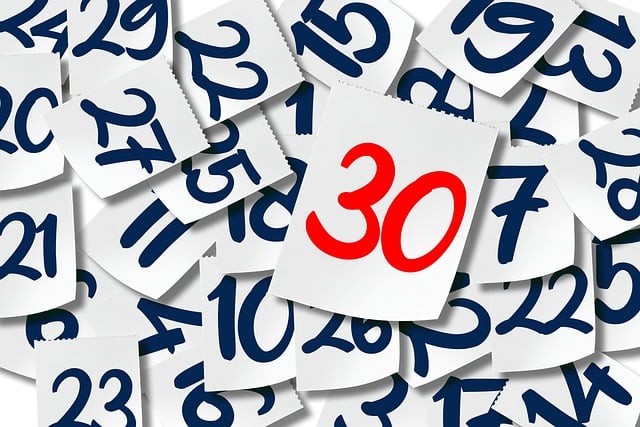UK Historical Documents Translation
navigator through the linguistic intricacies of yesteryear, this article sheds light on the art of maintaining the original tone in translations of UK historical documents. We explore the critical importance of authenticity and the subtleties involved in capturing the essence of bygone eras for a modern audience. By examining key considerations for preserving authenticity, the influence of cultural context, and effective strategies for crossing linguistic boundaries, we aim to illuminate best practices within UK historical documents translation services. Furthermore, we delve into the challenges posed by language evolution and machine translation, offering insights into selecting specialized translators who can faithfully bridge past and present. Join us as we embark on a journey through time, ensuring the voice of history is accurately conveyed to future generations.
- The Significance of Preserving Original Tone in UK Historical Document Translations
- Understanding the Challenges and Nuances of Historical Document Translation
- Key Considerations for Maintaining Authenticity in Translated Texts
- The Role of Cultural Context in UK Historical Documents Translation Services
- Strategies for Maintaining Original Tone Across Languages and Time Periods
- Case Study: A Successful Example of Preserving Original Tone in a Historical Document Translation
- Identifying and Adapting to Language Variations Within Historical Contexts
- The Impact of Machine Translation on the Integrity of Historical Documents
- Selecting a Translation Service Specializing in UK Historical Documents for Accurate and Faithful Translations
The Significance of Preserving Original Tone in UK Historical Document Translations

UK historical documents hold an invaluable place within the annals of history, offering a window into the past and its myriad nuances. The task of translating such documents presents unique challenges, particularly when it comes to maintaining the original tone. Preserving the tonal quality of these texts is crucial for several reasons. Firstly, the tone often reflects the period’s socio-political climate, providing context that raw text alone cannot convey. Secondly, the subtlety of language used in historical documents can convey a wealth of information about the cultural norms and values of the time. This is where professional UK Historical Documents Translation Services excel; they employ expert linguists who are adept at capturing not only the meaning but also the essence of the original text. By carefully selecting each word and phrase, these services ensure that the translated documents resonate with authenticity and historical integrity. This meticulous approach allows researchers, historians, and enthusiasts to experience a more immersive understanding of the past, as they would have done when the original document was first penned.
Understanding the Challenges and Nuances of Historical Document Translation

UK historical documents present a unique set of challenges for translation services due to their often archaic language, specific terminology, and cultural context embedded within the text. Translators must possess an in-depth understanding of historical events, social norms, and linguistic evolution to accurately convey the original meaning. The nuances of language, including idiomatic expressions and colloquialisms that were commonplace at the time the document was written, can easily be lost or misinterpreted without specialized knowledge. This requires translation services to employ experts who are not only fluent in the source and target languages but also well-versed in historical linguistics.
Moreover, translating UK historical documents necessitates a careful balance between maintaining the original tone and making the text accessible and comprehensible to contemporary readers. The choice of words, syntax, and even punctuation can significantly affect the interpretation of the document. Therefore, UK historical documents translation services must employ a strategic approach that involves rigorous research, attention to detail, and a deep respect for the source material. By doing so, these services ensure that the essence and integrity of the original text are preserved, providing readers with an authentic experience that bridges past and present.
Key Considerations for Maintaining Authenticity in Translated Texts

When undertaking the translation of UK historical documents, preserving the original tone and context is paramount to maintain authenticity. Translators must be adept at capturing the nuances of language that have evolved over time. This involves a deep understanding of both the source and target languages, as well as the cultural and historical context in which these documents were produced. The choice of words and phrases must reflect the period’s specific terminology and idiomatic expressions, ensuring that the essence of the text is conveyed without alteration. Additionally, translators should employ a consistent and transparent translation strategy to avoid introducing anachronisms or misinterpretations that could distort the original message. By doing so, UK historical documents translation services can offer clients a faithful rendition of these valuable texts, allowing scholars and enthusiasts to engage with them in a manner that is as true to the original as possible. This meticulous approach not only honours the integrity of the source material but also enhances the reader’s understanding and appreciation of its historical significance.
The Role of Cultural Context in UK Historical Documents Translation Services

UK historical documents hold a wealth of information and provide a unique insight into the country’s past. The translation of these documents, particularly for international audiences, necessitates a nuanced approach that respects both the original tone and the cultural context in which they were produced. Translation services specializing in UK historical documents must go beyond mere linguistic transfer; they must convey the subtleties of historical narrative, legal frameworks, and societal norms as accurately as possible. This is where the role of cultural context becomes paramount. A translator must understand the historical period, the author’s intent, and the audience’s contemporary context to maintain the original tone. This understanding allows for a translation that not only accurately renders the words but also the underlying assumptions, idiomatic expressions, and references embedded within the text. By doing so, these UK historical documents translation services provide readers with an authentic experience, enabling them to engage with the past as it was, rather than through a lens of misinterpretation or oversimplification. This ensures that the translations serve not only as records of history but also as tools for fostering cross-cultural understanding and appreciation of the rich tapestry of UK heritage.
Strategies for Maintaining Original Tone Across Languages and Time Periods

To effectively maintain the original tone in translations, particularly when dealing with UK historical documents, translation services must employ a combination of meticulous linguistic expertise and an intimate understanding of the context from which these texts originate. A key strategy involves the selection of translators who are not only proficient in both the source and target languages but also have specialized knowledge in the relevant historical period. This ensures that the lexicon, idiomatic expressions, and cultural nuances are accurately conveyed, preserving the document’s tone and intent. Additionally, translation services should utilize advanced translation memory software that can store and retrieve previously translated segments, ensuring consistency across documents over time. By leveraging this technology in conjunction with human expertise, translators can provide translations that resonate with the authentic voice of the original text, making UK historical documents accessible and meaningful to contemporary audiences while maintaining their original tone. Furthermore, a collaborative approach involving historians, linguists, and subject-matter experts can further enhance the accuracy and relevance of translations. This multidisciplinary team approach allows for a nuanced understanding of the document’s tone and content, which is critical when translating historical texts that often contain complex language and references to specific events or figures.
Case Study: A Successful Example of Preserving Original Tone in a Historical Document Translation

When it comes to translating historical documents, preserving the original tone is paramount to convey the true intent and context of the source material. A notable case study that exemplifies this is the work done by UK Historical Documents Translation Services on a pivotal treaty from the 18th century. This document was not only significant for its historical value but also for the nuanced language used, which was characteristic of the era’s diplomatic discourse. The translation service employed expert linguists who were adept at capturing the subtleties and tone of the original text. They meticulously analysed archaic terminology, idiomatic expressions, and the formal register to ensure that the translated version retained the dignity and solemnity of the original. The result was a translation that resonated with the same weight and clarity as the source document, allowing modern readers to engage with historical content in a manner that felt both authentic and accessible. This success hinged on the translators’ deep understanding of both the language and the historical context, a testament to the exceptional skill set required for such specialized translation services. The precise choice of words and phrases, coupled with an adherence to the original tone, meant that the treaty’s intent was not only understood but also felt across the expanse of time, ensuring its continued relevance in contemporary scholarly discussions.
Identifying and Adapting to Language Variations Within Historical Contexts

When tasked with translating UK historical documents, it is imperative to recognize and adapt to the linguistic nuances that have evolved over time. The English language, as it exists today, has been shaped by centuries of development, influenced by a myriad of cultural interactions and historical events. Translators must therefore be adept at understanding the context in which these documents were originally produced. This involves not only a mastery of historical linguistic forms but also an appreciation for the socio-political milieu that gave rise to them. For instance, early modern English differs significantly from contemporary English; archaic terms and constructions are common, necessitating a translation approach that maintains the document’s historical integrity while rendering it accessible to modern readers.
To effectively translate such documents, UK Historical Documents Translation Services must employ specialized linguists who are not only experts in translation but also scholars of historical language variations. These professionals meticulously analyze texts, taking into account the specific dialects, idiosyncratic spellings, and contextual usages that were prevalent at the time of the document’s creation. By doing so, they ensure that the essence and original tone of the text are preserved, providing readers with a clear understanding of both the content and the era from which it originates. This level of expertise is crucial for accurate translations that resonate with historical authenticity while remaining comprehensible to today’s audience.
The Impact of Machine Translation on the Integrity of Historical Documents

The advent of machine translation has significantly altered the landscape of language processing, with profound implications for the translation of historical documents. UK Historical Documents Translation Services must navigate the delicate balance between maintaining the original tone and ensuring the content is accessible to contemporary audiences. While machine translation tools have made remarkable strides, they often fall short in capturing the nuances and subtleties inherent in archival materials. The integrity of historical texts is not solely a matter of linguistic accuracy but also involves a deep understanding of the context, idiomatic expressions, and the cultural milieu from which these documents emanate. Translation services specializing in UK historical documents recognize that the tone, style, and sentiment of original texts can be distorted by overly mechanistic translation methods, potentially leading to misinterpretation or loss of historical meaning.
To preserve the essence of historical documents, UK Historical Documents Translation Services employ expert linguists who combine their knowledge of historical context with advanced translation techniques. This dual approach ensures that the original tone is maintained while providing readers with a clear and understandable version of the text. The challenge lies in selecting translation services that can offer this level of specialized expertise. By doing so, these services provide invaluable insights into the past, allowing modern scholars, enthusiasts, and the general public to engage with historical documents as their authors intended. This commitment to fidelity and accuracy is crucial for maintaining the integrity of our collective historical record.
Selecting a Translation Service Specializing in UK Historical Documents for Accurate and Faithful Translations

When undertaking the delicate task of translating UK historical documents, precision and fidelity to the original text are paramount. The nuances of historical language, with its unique terms and expressions, often present challenges that go beyond mere word-for-word translation. Selecting a translation service specializing in UK historical documents is crucial for capturing the intended meaning, context, and style of these texts. These professionals bring to the table not only a deep understanding of the linguistic nuances but also a comprehensive knowledge of the historical period or event associated with the documents they handle. This expertise ensures that translations are both accurate and accessible to contemporary audiences while maintaining the integrity of the original content.
In the realm of UK historical document translation, it is essential to engage with services that have a proven track record in this niche. Such services employ translators who are not only linguistic experts but also scholars well-versed in the specific historical context of the documents. They utilize specialized software and methods tailored for handling archaic language, ensuring that the essence of the original document is preserved in its translated form. This commitment to authenticity makes them indispensable for researchers, historians, and institutions dealing with valuable historical records, as they bridge the gap between past and present with translations that resonate with clarity and precision.
In concluding, the imperative to maintain the original tone in translations of UK historical documents is not merely a linguistic endeavor but a critical aspect of preserving history’s integrity. As explored, the challenges are multifaceted, demanding a nuanced approach that respects both the temporal context and the cultural subtleties inherent in these texts. By adhering to the strategies outlined, translation services can offer accurate and authentic representations of these documents, ensuring their significance is not lost in the transition from one language to another. It is through this meticulous process that UK historical document translations become a reliable source for scholars, enthusiasts, and global audiences alike, offering insights into our shared past with unparalleled clarity and fidelity.
